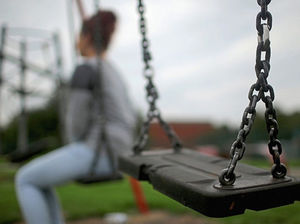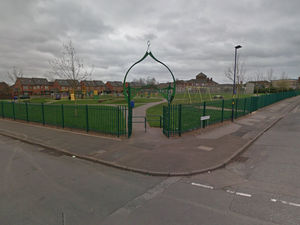Fears child abuse going unreported during lockdown
More than a quarter of adults surveyed in the Midlands are unsure where to seek help about suspected child abuse despite worries about the heightened risks to young people during the lockdown.

An NSPCC survey found that 26 per cent of adults are not confident they would know where to get advice if they thought a child or young person was being abused or neglected.
The findings also reveal that more adults in the Midlands are worried about the impact of the lockdown on children suffering domestic abuse than any other type of harm, with 76 per cent reporting they were ‘fairly’ or ‘very’ concerned, compared to 72 per cent for emotional abuse and sexual abuse.
There is growing concern for the safety of vulnerable children during the coronavirus crisis, particularly as teachers and social workers have limited access to them with most not taking up the places at school allocated to them.
The Local Government Association (LGA) has already reported that councils are seeing up to a 50 per cent decline in social care referrals of children who are at risk.
That is why the NSPCC has launched a nationwide campaign, backed by survivors and £1.6million of Government funding, to ensure more people know they can raise concerns about child safety and wellbeing to its helpline.
Kam Thandi, head of NSPCC helpline, said: “It is terrible to think that cases of child abuse and neglect may be going unreported because people don’t know where to go to for help and advice.
“At the moment, we’re increasingly reliant on the public to come forward with their concerns and if reports drop we fear abusers will have free reign to harm children, both physically and emotionally.
“Even if you are not 100 per cent sure, we urge any adult who is worried for the safety or wellbeing of a child to contact our helpline. We can answer any questions and concerns, provide reassurance or importantly take quick action if we feel a child is in danger.”
Spotting the signs of abuse or neglect may be more difficult in the present climate, but indicators can include aggressive or repeated shouting, hearing hitting or things being broken, children crying for long periods of time, very young children left alone or are outdoors by themselves, children looking dirty or not changing their clothes or children being withdrawn or anxious according to the charity.
To help workers who regularly visit homes, such as postal workers and delivery drivers, spot safeguarding concerns the NSPCC has made a 15-minute safeguarding course free.
The NSPCC Helpline is available for advice and support on 0808 800 5000 or via help@nspcc.org.uk
If you suspect a child or young person is in immediate danger call the police immediately on 999.
Alternatively, contact the children’s social care team at your local council by visiting gov.uk/report-child-abuse-to-local-council





